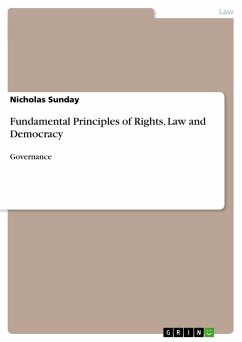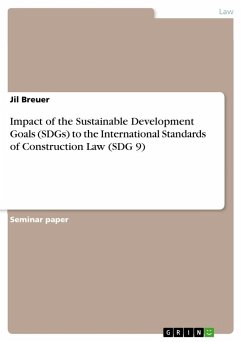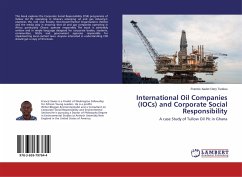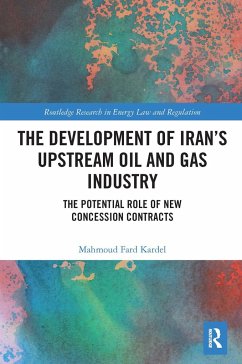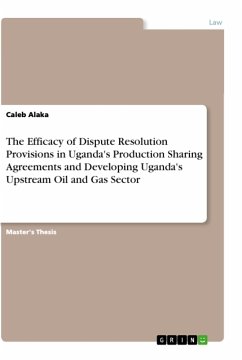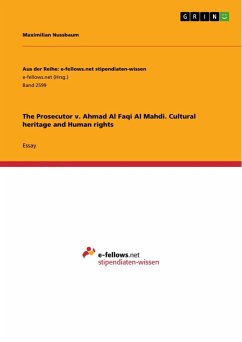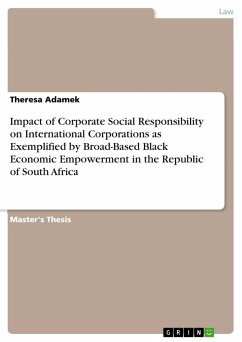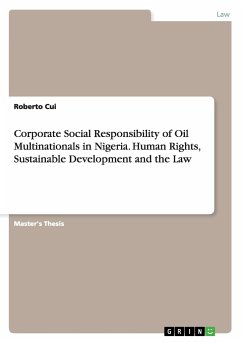
Corporate Social Responsibility of Oil Multinationals in Nigeria. Human Rights, Sustainable Development and the Law

PAYBACK Punkte
0 °P sammeln!
Master's Thesis from the year 2014 in the subject Law - Miscellaneous, grade: 1C, University of Stirling (School of Arts and Humanities - Division of Law and Philosophy), course: LLM International Energy Law and Policy, language: English, abstract: Decades of irresponsible oil exploitation in the Niger Delta have caused a water and air pollution which does not have many comparisons anywhere else. In an already fragile country as Nigeria, characterised by weak democratic institutions and poor economic governance, this situation has led to increasing discontent and violence towards both the gove...
Master's Thesis from the year 2014 in the subject Law - Miscellaneous, grade: 1C, University of Stirling (School of Arts and Humanities - Division of Law and Philosophy), course: LLM International Energy Law and Policy, language: English, abstract: Decades of irresponsible oil exploitation in the Niger Delta have caused a water and air pollution which does not have many comparisons anywhere else. In an already fragile country as Nigeria, characterised by weak democratic institutions and poor economic governance, this situation has led to increasing discontent and violence towards both the government and the oil multinationals. These two actors co-operate for the maximisation of oil profits and revenues while, at the same time, excluding local host communities from the participation in the oil development projects, preventing them to achieve a sustainable development, violating their Human Rights, and compromising their livelihoods. This paper analyses the legal framework of Nigeria in the oil sector and the peculiarities of the country in order to provide a critical overview of the issues, demonstrating that the amendment of the domestic Acts dealing with the topic, as well as the remediation to the damages caused by the oil multinationals, are no longer deferrable. The final aim is to suggest a pattern to sustainable oil development which, by means of applying the concepts of Corporate Social Responsibility, would help to quell the conflict, to improve the standards of life of local people, and to make Nigeria emerge as a socio-environmentally responsible African resource-rich country.




